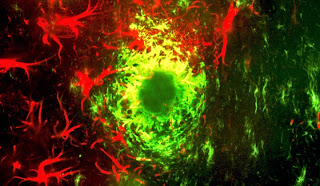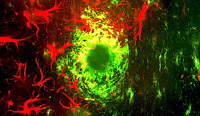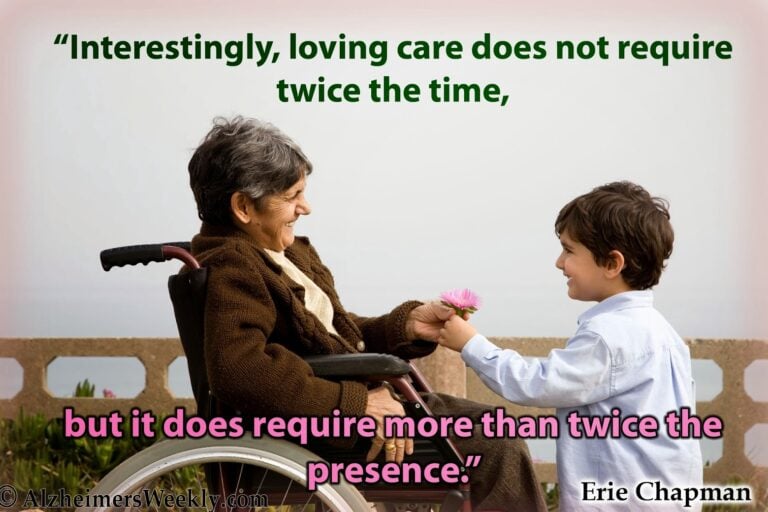MEDICATION TRIALS:
Although Astra Zeneca’s AZD05030 disappointed cancer researchers, it surprisingly blocked the damage caused by Alzheimer’s plaque. Learn about the speed with which this compound is being moved to human trials.
Memory and as well as connections between brain cells were restored in mice with a model of Alzheimer’s given an experimental cancer drug, Yale School of Medicine researchers reported in the journalAnnals of Neurology.
The drug, AZD05030, developed by Astra Zeneca proved disappointing in treating solid tumors but appears to block damage triggered during the formation of amyloid-beta plaques, a hallmark of Alzheimer’s disease. The new study, funded by an innovative National Institutes of Health (NIH) program to test failed drugs on different diseases, has led to the launch of human trials to test the efficacy of AZD05030 in Alzheimer’s patients.
“With this treatment, cells under bombardment by beta amyloid plaques show restored synaptic connections and reduced inflammation, and the animal’s memory, which was lost during the course of the disease, comes back,” said Stephen M. Strittmatter, the Vincent Coates Professor of Neurology and senior author of the study.

Star–like glial cells in red surround alpha beta plaques in the cortex of a mouse with a model of Alzheimer’s Disease.
Credit: Image courtesy of Yale University
In the last five years, scientists have developed a more complete understanding of the complex chain of events that leads to Alzheimer’s disease. The new drug blocks one of those molecular steps, activation of the enzyme FYN, which leads to the loss of synaptic connections between brain cells. Several other steps in the disease process have the potential to be targets for new drugs, Strittmatter said.
“The speed with which this compound moved to human trials validates our New Therapeutic Uses program model and serves our mission to deliver more treatments to more patients more quickly,” said Christopher P. Austin, M.D., director of NIH’s National Center for Advancing Translational Sciences (NCATS), which funded the work.
Source:
Reference:
- Adam C. Kaufman, Santiago V. Salazar, Laura T. Haas, Jinhee Yang, Mikhail A. Kostylev, Amanda T. Jeng, Sophie A. Robinson, Erik C. Gunther, Christopher H. van Dyck, Haakon B. Nygaard, Stephen M. Strittmatter. Fyn inhibition rescues established memory and synapse loss in Alzheimer mice. Annals of Neurology, 2015; DOI: 10.1002/ana.24394












The Same for my mother.
How does a person get in the clinical trial and at what stage of Alzheimer's is a patient accepted? I would like to think about the possibility of my mother being in the clinical trial. Thank you.